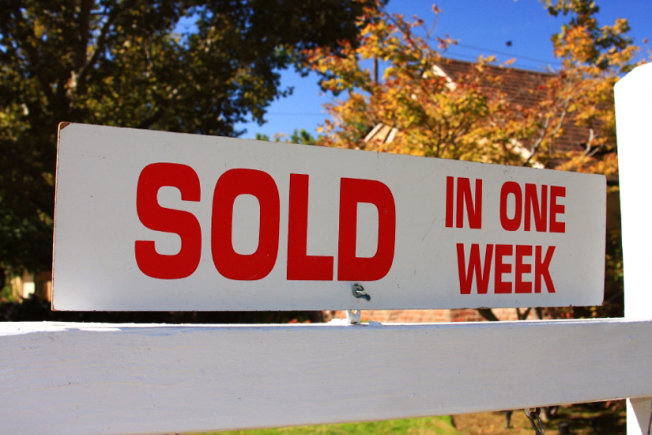Step by Step Guide to Selling
Your Home
Home » Sellers Info » Step by Step Guide to Selling Your Home

Getting you ready (with the help of Peter Sagos and the Team)
1. What are your needs?
Ensure you have defined and written down the reasons why you have decided to sell your home. First ask yourself these two questions, “Why do I want to sell?” and write down all of your reasons for selling your home. For instance, a new job in another city, a new baby, the need for a larger home or more storage may necessitate a move. Don’t forget to include the time frame within which you would like to sell your home, or if there is a particular profit margin you would like to make. Working with Home613, you can develop a roadmap to achieving your objectives and set a realistic time frame.
2. Setting the Price
This is the step people lament about the most, but it is actually the easiest one. Determining the best possible selling price for your home is what real estate agents do best. With the help of Peter, you will need to take into account the condition of your home, what price comparable homes are selling in your neighbourhood, and the state of the real estate market in your area. The most activity is generated from both other real estate agents and buyers when there is a fair asking price from the outset. It’s relatively challenging to remain unbiased when putting a price on your own home, so the expertise of your real estate agent is invaluable at this step. Peter, will know the price of comparable homes in your neighbourhood and the average time those homes are sitting on the market. If you want a truly objective opinion about the price of your home, you could have an appraisal done. This typically costs a few hundred dollars.
Remember: The best place to start is by setting a fair market value price from the outset rather than pricing your home too high. Homes priced even 3 percent over the market value, take longer to sell. Unfortunately, if your home is on the market for too long, buyers begin to question if there is something wrong with the property. When this happens, all too often, the seller drops the price just below to the market value, to compete with newer listings.
3. Prepare your home
Most of us don’t keep our homes in “showroom” condition. We tend to overlook dust on chandeliers, windows or doors that stick or broken porch lights. The first thing to do is get your home in tip-top shape. Address all those “little things”: piles of boxes in the garage, broken porch lights, and doors or windows that stick. The condition of your home – can increase the amount a buyer is willing to offer and will make your house sell more quickly. Peter will happily suggest ways to stage the house and it make it more appeal to buyers.
- Make minor repairs: no worn doormats, no leaky faucets; to ensure buyers’ first impression is a great one;
- Remove very personal items such as family photos, keepsakes and children’s toys to help buyers view the homes as theirs;
- Remove clutter, knick knacks and ensure both kitchen and bathroom counters are clear to make every area seem spacious;
4. Get the word out
Now that you’re ready to sell, Peter will set up a marketing strategy specifically for your home. There are many ways for you and your real estate agent to get the word out, including:
- Facebook, Twitter and all other Social Media Outlets
- Your friends, family and co-workers
- Yard Signs
- Open Houses
- Media advertising
- Agent-to-agent referrals
- Direct mail marketing
- My Website
In addition to listing your home on the MLS, your agent will use a combination of these tactics to bring the most qualified buyers to your home. Your agent should structure the marketing plan so that the first three to six weeks are the busiest.
Negotiating and Closing
5. Receive an offer
When a potential buyer provides a written offer, firstly, your real estate agent will find out whether the individual is prequalified or preapproved to buy your home. If the potential buyer is pre-approved, then your real estate agent must, by law present the offer to you. If it is a reasonable offer, you and your agent will review the proposed contract which will include the offer price as well as a legal description of the property, a list of fees and who will pay them, the closing and possession dates, the amount of the deposit and if light fixtures and appliances will stay in the home, to name a few. The important part is that your real estate agent will be with you every step of the way and will ensure that you have a clear understanding of the offer at hand.
6. Counter offer
Most offers require some negotiating to ensure an agreement is amenable to all parties. Don’t worry; your real estate agent is well versed in both the ins and outs of negotiations and the intricacies of contracts. Peter will protect your best interests through the bargaining process and will ensure you know what each contract clause means
Once both parties have agreed on the terms of the sale, Peter will prepare a contract.
Make a list
Once you accept an offer to sell your house, you will need to make a list of all the things you and your buyer must do before closing. The property may need to be formally appraised, surveyed, inspected or repaired. Your real estate agent can spearhead the effort and serve as your advocate when dealing with the buyer’s agent and service providers.
7. Close the deal
A few days prior to closing you will meet with your lawyer to review the documents and the statement of adjustments. After the documents have been signed by all parties, they are lodged for registration. After registration takes place, the lawyer/notary looks after all the disbursements.
After the closing, you should make a “to do” list for all the little things required when turning the property over to the new owners including canceling the electricity, gas, cable and other services; and collecting the owner’s manuals and warranties for any appliances which are staying.


